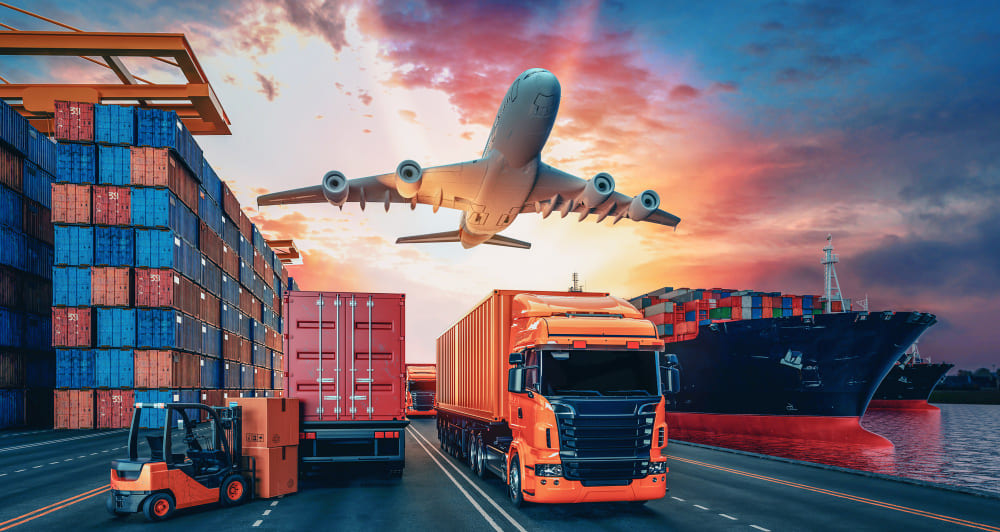International shipping is considered one of the most important elements of global trade, as it contributes to achieving the smooth flow of goods and merchandise across borders. This complex system includes several elements and factors that affect the flow of operations and requires a deep understanding to achieve efficiency and success. In this article, we will take an overview of the importance of international shipping, its main elements, and the challenges it faces.
The importance of international shipping
International shipping allows companies and countries to exchange goods and services across borders, which contributes to expanding market horizons and improving competitiveness. This type of shipping is an essential pillar of the global economy. International shipping holds great importance in the context of global trade and global economy. Here are some points that highlight the importance of international shipping:
- Expanding Markets: International shipping can open a new horizon for businesses and industries, as companies can expand into new markets across borders and reach new customers.
- Improving competitiveness: The ability to provide products and services on a global scale contributes to improving the competitiveness of companies, as they can effectively present their products in multiple places.
- Supporting the global economy: International shipping encourages economic exchange between countries, which contributes to the growth of national and global economies.
- Logistics chain integration: International shipping helps in supply chain integration, where companies can optimize their operations and organize the flow of goods effectively.
- Providing efficient access: International shipping allows companies to access other resources and components efficiently, which contributes to improving the quality and variety of products.
- Promoting international cooperation: International shipping encourages interaction and cooperation between countries, which contributes to strengthening international relations and a common understanding between cultures and economies.
- Balancing trade: International shipping plays a vital role in balancing global trade, as it allows countries to export and import goods and services in a way that promotes fair exchange.
- Facilitating people’s lives: International shipping provides a variety of products to consumers around the world, which contributes to improving their lives and providing wider choices.
International shipping items
The elements of international shipping constitute a variety of aspects and processes that must be considered to ensure efficient and safe transportation of goods across borders. Here are some of the key elements of international shipping:
- Means of transportation: This includes sea, air, and land freight. Each method has its own advantages and challenges.
- Shipping Documents: Senders and recipients have to handle shipping documents such as bills of loading, bills of unloading, and certificates of origin.
- Shipping cost: includes actual transportation cost, customs fees and taxes. These should be taken into consideration when calculating the total shipping cost.
Challenges facing international shipping
International shipping faces a range of challenges that companies and suppliers must address to ensure successful international transportation operations. Here are some of the main challenges:
- Customs and duties: Companies must adhere to the customs regulations and laws of the respective countries.
- Insurance: International shipping requires considering insurance to cover potential risks during transportation.
Optimization techniques
Optimization techniques play a vital role in improving the efficiency of international shipping operations and facilitating supply chain organization. Here are some techniques that can be used to improve international shipping operations:
- Information Technology: Using the latest technologies can contribute to improving logistics management and tracking of shipments.
- Artificial Intelligence and Data Analysis: It can help predict challenges and improve efficiency.
The promising future of international shipping
The future of international shipping is moving towards innovative transformations and technologies that meet market aspirations and improve the efficiency of cross-border transport operations. Here are some expected future trends:
- Artificial Intelligence and Photoanalysis Technology: Photoanalysis and artificial intelligence are expected to be used to improve forecasts, analyze logistics data, and improve route planning.
- Effective tracking and monitoring technologies: The development of tracking technologies, thanks to the use of smart devices and communications networks, will contribute to improving the accuracy of tracking goods.
- Decentralized Technology (Blockchain): Blockchain technology may be used to improve the transparency and security of transactions in the supply chain and record of goods.
- Autonomous Shipping: Advances in self-charging technology could lead to an increase in the use of self-driving ships and aircraft.
- Clean energy technology: Growing interest in eco-mobility could drive the use of clean energy technology in transportation.
- Improving air freight: The expansion of electric aircraft technology and the development of modern distribution centers can contribute to improving the efficiency of air freight.
- Robotics and Automation: The use of robots and automation in the charging and unloading stages can reduce cost and increase efficiency.
- Smart Logistics Networks: The development of smart logistics networks that facilitate the exchange of information between all parties and improve the organization of the supply chain.
- Human-machine interaction: The future could see greater human-machine interaction in shipping operations, with technology employed to enhance process performance.
- Smart Packaging Technology: Improving the technology used in packaging to improve security and maintain the integrity of goods.




Leave a Reply